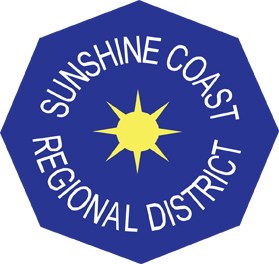Sunshine Coast Regional District (SCRD) directors have rejected a recommendation to apply for a green infrastructure grant that could cover up to 73 per cent of the $5-million Chapman Lake Supply Expansion Project costs.
The motion failed in a tie vote at an afternoon board meeting on June 28, after it was introduced and debated at committee that morning.
In May, West Vancouver-Sea to Sky MP Pamela Goldsmith-Jones sent a letter to the SCRD informing directors of the Environmental Quality Program, “which provides funding for improvements to community drinking water, waste water and storm water infrastructure.” The program is a product of a bilateral agreement between the governments of Canada and B.C. to spend $3.9 billion to fund infrastructure projects in the province. The application deadline is Aug. 29, with announcements made in the spring of 2019.
Staff recommended applying for the Chapman project since it satisfies a number of the grant requirements. For example, it increases access to potable water, “improves environmental quality by providing additional water supply to support environmental flows for fish and ecosystems,” covers a wide geographic area and large population, is shovel ready and the district’s share of the funding has already been secured through a loan authorization bylaw.
A recommendation in favour of the application passed at the June 28 committee meeting, but Elphinstone director Lorne Lewis called for a separate vote on the recommendation during the afternoon board meeting.
“I’d just like to voice my opposition to this, that’s what I’m doing,” said Lewis, before chair Bruce Milne called a vote. Lewis, Milne and Sechelt director Doug Wright voted against applying for the grant. Milne said the vote was carried, but Lewis asked staff whether the votes were weighted, since the funding applies to the administration and operation of a service. After staff confirmed that was the case, the outcome was reversed.
“The vote was called and counted, and I won’t ask you to change your votes, so that means it’s defeated on a tie,” Milne said.
In a weighted vote, Sechelt gets six votes, and Elphinstone gets two. The rest of the directors who were eligible to vote – Pender Harbour/Egmont, Halfmoon Bay, Roberts Creek and West Howe Sound – each have two votes. A tie vote results in the defeat of a motion.
“We may have just cost our constituents an opportunity to access federal funds, and the finances and the policy piece got a bit mixed up here,” said Roberts Creek director Mark Lebbell in response to the vote.
At the morning committee meeting, Tina Perreault, SCRD’s chief financial officer, told directors it would have taken staff about two days to apply since a lot of the material was already prepared. Lebbell asked whether staff could apply to fund Phase 3 of the universal water meter installation project – which is estimated to cost up to $6 million – but Perreault said the Chapman project “fit within the criteria the best.”
Initially, the water meter installation project was to be funded through a Gas Tax Strategic Priorities Grant, but the application was rejected, prompting the district to seek permission from the community to take out a long-term loan of $6 million via an alternative approval process.
During the committee meeting, Milne spoke in favour of applying under the program for the metering project instead of Chapman, noting the project met the requirements of increasing access to potable water. “Meters provide treated water and you can’t tell me the grant for meters isn’t ready to go… Given my long-held opinion that [the Chapman] project will probably never see the light of day, spending two days of staff time to get grants for it is less than efficient,” he said.
On Wednesday, however, answering a question from the gallery after the regular Sechelt council meeting, Milne said he intended to have the SCRD board revisit the defeated grant application motion.
“I told the board at the time that I will be bringing that back for reconsideration at the next board meeting, so that all individuals are clear about how they’re voting and what the impacts are,” Milne said.
“It’s my understanding that many people who are opposed to the project going ahead may still be in support of federal grants or other grants to support that project if there’s some likelihood that it does go ahead, and I don’t think that was clear to the board when they voted,” he said.
– With files from Sean Eckford



